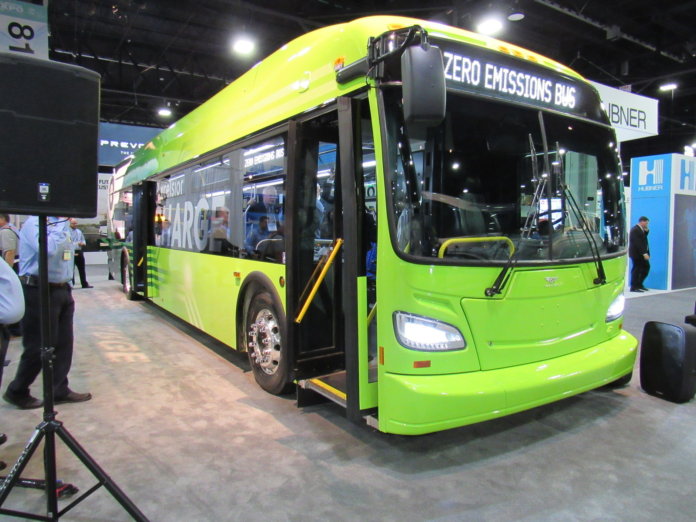New Flyer of America Inc., the U.S. subsidiary of New Flyer Industries Inc., has announced the introduction of the next generation of its battery-electric heavy-duty transit bus: the Xcelsior CHARGE.
With a focus on advancing bus technology in North America, New Flyer first revealed its battery-electric Xcelsior design in 2011, unveiled a prototype in 2012, and delivered the first bus in 2014. Over the past five years, New Flyer says, the manufacturer conducted intensive research, development and testing to improve the design, performance, and technological advancement of the battery-electric Xcelsior bus, which is now introduced as the Xcelsior CHARGE and available in 35-, 40- and 60-foot articulated bus rapid transit models.
According to New Flyer, the Xcelsior CHARGE builds on the Xcelsior transit bus platform, offering extended range battery technology made in America, electric motors with efficient regenerative energy recovery, the high torque necessary for steep-grade cities such as San Francisco and Seattle, and charging infrastructure compliant with industry standards.
“At New Flyer of America, we’re working hard to provide transit authorities and their passengers with more attractive transportation options that they can feel good about,” says Wayne Joseph, president of New Flyer of America. “We’re committed to supporting healthy communities through manufacturing leading zero-emission bus technology in America.”
New Flyer says passengers on the battery-electric Xcelsior CHARGE will experience a quiet and highly accessible transit bus ride, with improved step height, expanded front door width, a 1:7 entry ramp ratio for passengers with mobility assist devices, and a carrying capacity of up to 83 passengers (seated and standing). The company says the model also includes optimized battery placements to comply with maximum gross axle and gross vehicle legal weight limits. The Xcelsior CHARGE extended range configurations allow for up to 600 kWh battery capacity, obtaining realistic transit ranges of over 200 miles on a single charge based on Federal Transit Administration test protocol, according to New Flyer.





